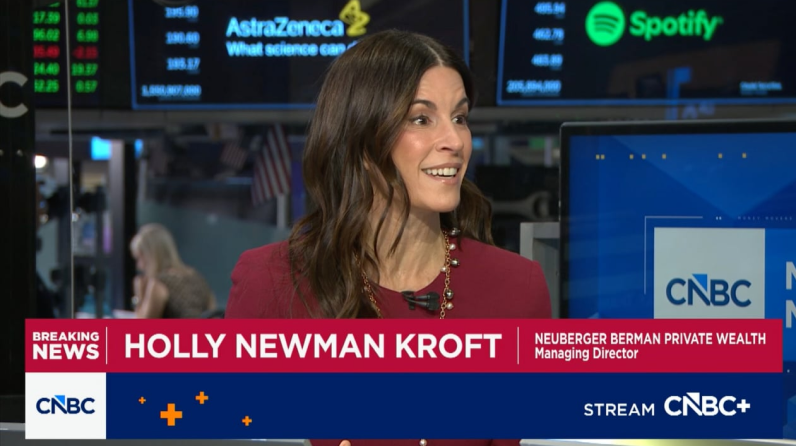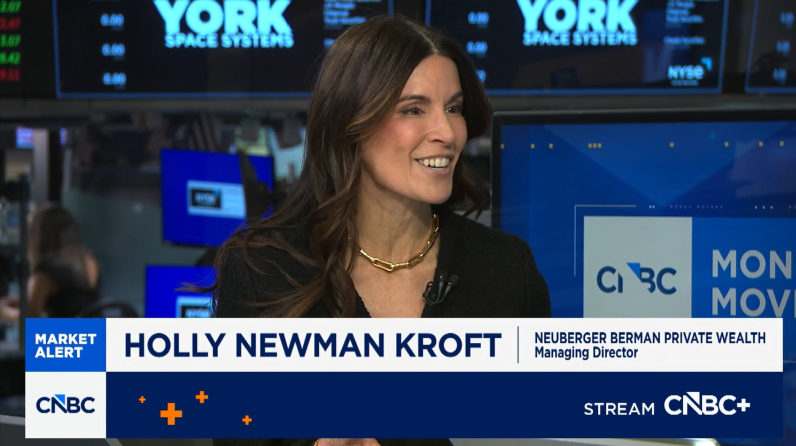

As the “great wealth transfer” emerges, we see a different set of values taking center stage in how younger investors view their wealth.
Many in the new generation do not measure success in just accumulating wealth, but rather from in the positive impact they can achieve with their wealth—less about what they can leave their heirs and more about the way they leave the world, less about “me” and more about “we.” They are increasingly seeking to align their planning and investments with their values and world view, with implications for the investment landscape and what wealth managers may do to help serve them.
The Great Transfer
Baby Boomers have had a disproportionate impact on society at every stage of their development, from the antiwar movement of the 1960s to the stock market boom of the ‘80s to the technology revolution of the 21st century, and have helped drive the stock market to new records along the way. Now, this generation is having another major impact in the form of the “great wealth transfer” to the younger generation. According to Cerulli, from 2023 through 2045, boomers in the U.S. will transfer a projected $84 trillion to Millennials and Gen Xers—essentially passing the torch as to how that money is invested, gifted and managed. In essence, it means that the views and ideas of those groups will increasingly dominate the direction investors and their advisors take in the future—and they are quite different from what has come before.
Changing Sentiment
Simply put, younger generations are exhibiting a changing sentiment around wealth—a different set of values in which success is measured not just by accumulating wealth but also by whether it is meaningfully invested for a positive impact. This also involves a shift in focus beyond their heirs to whether the world can be left a better place when they are gone. Similarly, the coming years are expected to see increased involvement in the investment and planning process by women, who tend to look toward positive impact and values as key benchmarks for success (see [location/article name, link online]).
As asset managers, we are seeing this evolution in real time, particularly when it comes to the role of environmental, social and governance (ESG) factors employed as part of the investment process. For example, 79% of Millennials, but also 57% of Gen Xers, indicate a strong interest in investing based on ESG themes, which is far greater than their Boomer counterparts.
This may involve simple screening out of companies or industries to which the investor objects. Or, more meaningfully, it may involve incorporating ESG factors into investment research, based on the understanding that ESG-related risks could affect the financial performance. Finally, it may mean investing for impact—channeling capital into issuers that will help drive positive change and avoiding those that may hinder it. A gamut of innovative strategies can cater to the priorities of the these newer investors.
Amid this generational change, we are also seeing changing attitudes toward inheritance and philanthropy. In our experience, the next generation is much less interested in retaining family wealth for their personal benefit. Rather they are looking toward philanthropy to generate fulfillment and a sense of purpose. Practically speaking, this is accompanied by an interest in being more strategic and programmatic in seeking to distribute resources, as well as identifying organizations that closely align with their goals for their assets.
Addressing These Priorities
For wealth managers, there is a huge opportunity for engagement across generations to find commonality of interest and address key priorities. From an investment perspective, this may mean providing appropriate strategies that align investment and impact goals. From a planning perspective, it may mean looking for approaches that can maximize intergenerational wealth, and creating and facilitating pathways for philanthropic interests to flourish. Families may seek to work together on family causes, identifying potential philanthropic organizations with which to engage, or running a foundation that can heighten the effectiveness of those interests—and asset managers and advisors can be involved at crucial junctures along the way.
As such, asset managers need to come to the table with traditional expertise in wealth strategy and estate planning, as well as philanthropic advisory and family governance capabilities. From an engagement perspective, advisory teams should be empathetic regarding the needs and preferences of multiple generations, and combine diverse skills, perspectives and communication styles to develop and maintain productive relationships that can translate the interests of clients into reality.
A Natural Progression
In some ways, the preferences of the younger generation are a natural extension of the values and preferences of their older counterparts: Interest in ESG has been accelerating and deepening for years, as has interest in more effective philanthropy, as investors have become more committed to making a difference, all while still addressing their own personal wealth goals. The coming years promise to be interesting and challenging as wealth managers seek to balance these interests and achieve results for clients.


Accolades
Forbes | SHOOK 2026 Top Women Wealth Advisors

INSIGHTS
CIO Notebook: January Jobs Prove Worth the Wait

VIDEO
Holly Newman Kroft Featured on CNBC’s Money Movers February 10th

MARKET COMMENTARY
A Rocky Rotation

VIDEO
Holly Newman Kroft Featured on CNBC’s Money Movers January 29th

INSIGHTS
Seismic Shifts That Could Drive Private Markets

INSIGHTS
Concentrated Stock Risk: Working From All Angles
INSIGHTS
Trump 2.0: Middle Innings of an Uncertain Game
INSIGHTS
Preparing Your Children for Wealth: A Life-Stage Roadmap
VIDEO
Highlighting Jenna Elson, Team Kaminsky’s Dedicated Certified Financial Planner®
INSIGHTS
CIO Notebook: Fed Stands Firm as Powell’s Successor Waits in the Wings
MUNICIPAL BASIS POINTS
Buckle Up
REPLAY
Private Wealth Investment Outlook 1Q26
This material is provided for informational and educational purposes only and nothing herein constitutes investment, legal, accounting or tax advice. This material is general in nature and is not directed to any category of investors and should not be regarded as individualized, a recommendation, investment advice or a suggestion to engage in or refrain from any investment-related course of action. Investment decisions and the appropriateness of this material should be made based on an investor's individual objectives and circumstances and in consultation with his or her advisors. Any views or opinions expressed may not reflect those of the firm as a whole. This material may include estimates, outlooks, projections and other “forward-looking statements.” Due to a variety of factors, actual events may differ significantly from those presented.
A Portfolio’s application of ESG criteria is designed and utilized to help identify companies that demonstrate the potential to create economic value or reduce risk; however as with the use of any investment criteria in selecting a portfolio, there is no guarantee that the criteria used by the Portfolio will result in the selection of issuers that will outperform other issuers, or help reduce risk in the portfolio. The use of the Portfolio’s ESG criteria could also affect the Portfolio’s exposure to certain sectors or industries, and could impact the Portfolio’s investment performance depending on whether the ESG criteria used are ultimately reflected in the market.
Neuberger Berman products and services may not be available in all jurisdictions or to all client types. Diversification does not guarantee profit or protect against loss in declining markets. Investing entails risks, including possible loss of principal. Past performance is no guarantee of future results.
Neuberger Berman Investment Advisers LLC is a registered investment adviser. The “Neuberger Berman” name and logo are registered service marks of Neuberger Berman Group LLC.